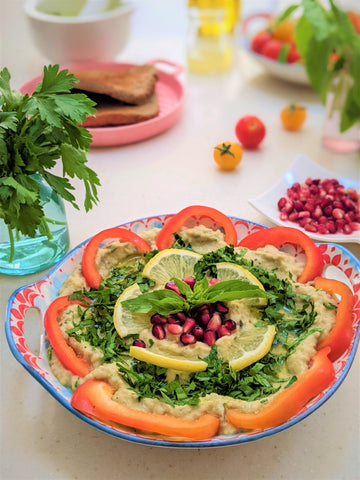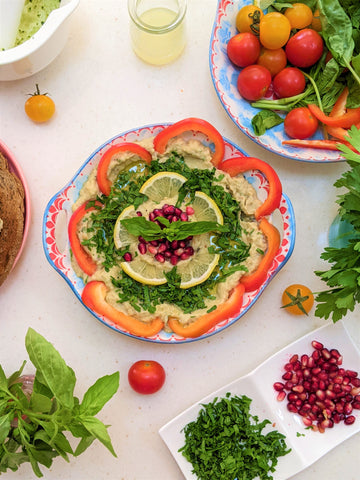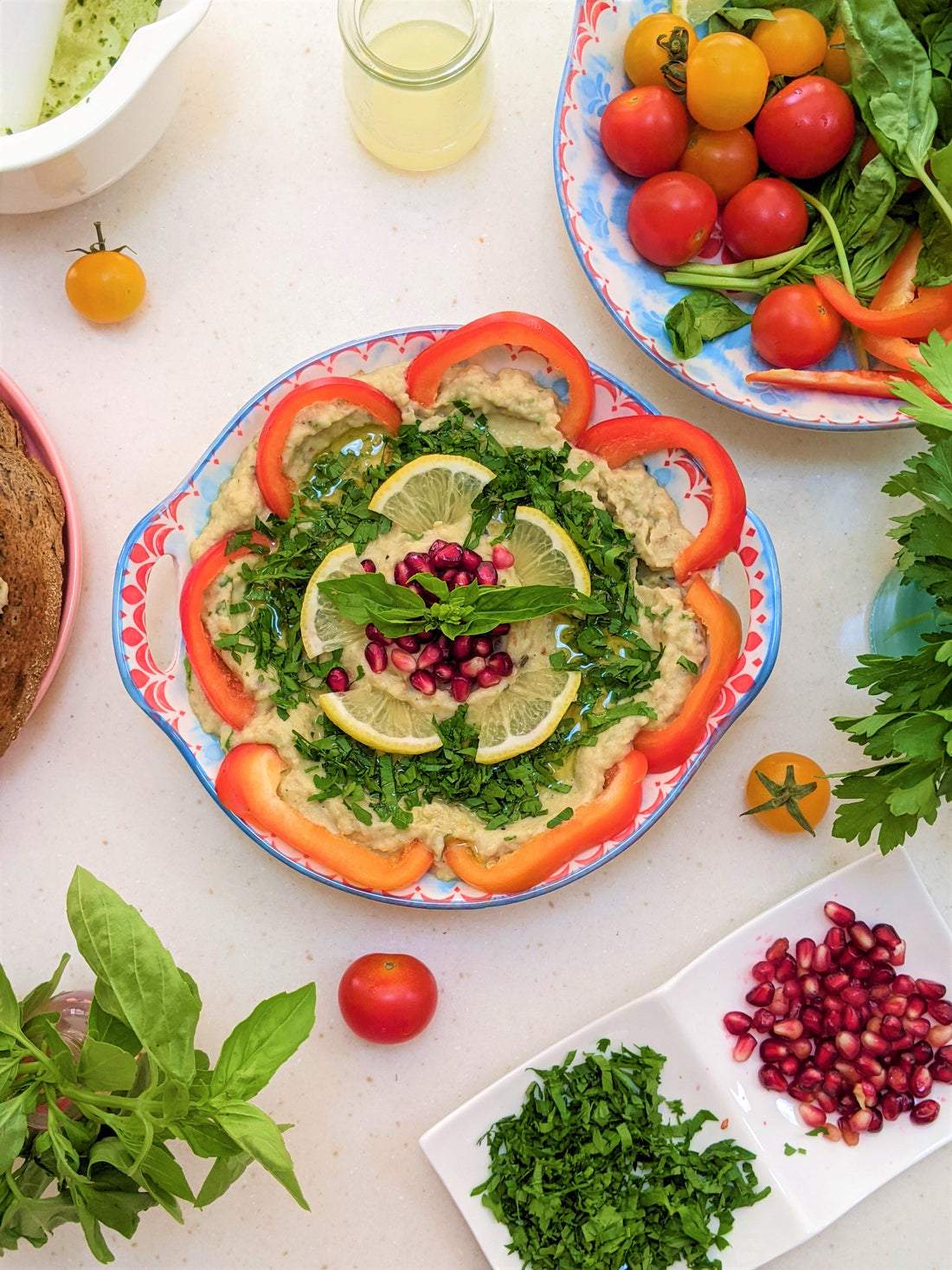
A common misconception in the Middle Eastern food world is mistaking Mutabbal for Baba Ghanouj. They are both made with roasted eggplant as a base, the difference being Tahini paste added to the Mutabbal whilst Baba Ghanouj has no Tahini but a mix of finely chopped veggies. The flavor profile for both while may seem similar but is very different. The complexity of the Mutabbal flavor has almost earned it the position of the most popular meze.
Today I will be making Mutabbal, with tahini paste. It is widely known now and you should be able to find it easily. If you don't, you can't make Mutabbal, it is a main ingredient.
In todays' recipe I will be adding basil which is not a traditional ingredient but elevates the Mutabbal to another level. Being from Gaza we use basil a lot in our cooking, unlike many other Palestinian kitchens who use Coriander. If you are not a fan or you can't come across basil, simply make it without... although I strongly advice you to try it.
For Mutabbal the eggplant must be roasted. I tried many methods for doing this, in the oven, in a pan, but nothing beats the stove top char that is the essence of Mutabbal. So if you are having second thoughts don't, stove top is the way to go. The eggplant must touch the flame directly. Use foil paper to cover your stove and minimize cleaning.
Ingredients:
- 1 large eggplant
- 1 garlic clove
- 6-7 basil leaves
- Juice of 1 medium lemon
- 1 tablespoon yoghurt
- 3 tablespoons tahini
- Salt
- Chopped parsley
- Pomegranate arils
- Olive oil

*When the eggplant is soft and cooked all over, place it in a plate to cool so you can peel it. Some people place it in a plastic bag this way it peels easier. I have no issues peeling it without the plastic bag, but if you feel it is easier for you, please go ahead. When it has cooled down, peel it and chop off the head. It's ok if you have tiny charred bits left, I actually love them, they add flavor.
*Place the eggplant in the blender and pulse it lightly until the eggplant is chopped and there are no large bits. You can totally do this with a knife if you prefer a chunkier Mutabbal, just chop the eggplant in all directions until you've reached the consistency you prefer. For me, I will be using the blender. I prefer the easy option as long as it doesn't affect the flavor.
*In a mortar drop the chopped basil leaves and lightly pound them to release all the oils and flavor. You can settle for chopping and skip the pounding but pounding results in a stronger basil flavor.
*Place the eggplant in a bowl, add the salt, lemon juice, tahini, yoghurt, pounded basil, crushed garlic clove and give them a good mix until the yoghurt and tahini are fully blended in. You need to taste at this point to check if you need more salt or lemon juice. If all is okay, start plating.
*Garnish with alot of chopped parsley, parsley and mutabbal are buddies they go along so well. Scatter some pomegranate arils, drizzle with olive oil and you're ready to serve. You can eat it with pita bread, or spread it on a toast, either way it is delicious.

